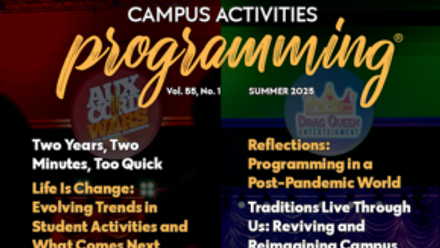Awakening Compassion at Work: The Quiet Power That Elevates People and Organizations - JCAPS Vol. 2 Issue 2
This book acknowledges and substantiates the suffering that exists in the workplace. Suffering is understood as mental, physical, or emotional distress or hardship. The authors add that “suffering is an experience that threatens our sense of holistic integrity and existence” (Worline and Dutton, 2017, p.36) The 2020 crises have increased suffering in our lives, including in our work environments. As campus activities professionals, we have experienced significant shifts in how we do work and deliver services to students. While these crises create opportunities for innovation and creativity, the constant adaptation, ambiguity, and unpredictability cause suffering. This book is poignant because it engages the suffering that exists in the workplace, whether or not we are experiencing a pandemic. Worline and Dutton (2017) impress that we cannot give our full selves to our work when we as individuals, teams, and universities do not acknowledge the toll suffering takes on us personally and professionally.
Worline and Dutton (2017) propose that our dominant organizational systems—the structures, people, culture, and processes of an organization, often ignore suffering in the workplace. The authors robustly exemplify the criticality for us, our supervisors, and our institutional leadership to understand and acknowledge suffering at work. They emphasize compassion as the key to healing the suffering we experience at, and because of work. The need for compassion has been amplified during our current crises and is critical for the tumultuous remainder of 2020 on our campuses.
As you read this review, know that Awakening Compassion at Work was not explicitly written for higher education professionals. Instead, it was written for people who think about and study organizational systems in more traditional business contexts. The authors are university academics who understand higher education culture, and their experiences directly translate to university organizational systems. The connection between this book and our work is highly relevant. As professionals who are deeply invested in the importance of campus activities in relation to student development, it is evident that compassion in the workplace creates an atmosphere where staff experience a sense of well-being that invites students to flourish as well. Along with the pandemic and systemic racial injustice, we know that our students also experience suffering through transitioning to college, experiencing mental health issues, uncertainty about their futures, homesickness, roommate issues, and the like. As Worline and Dutton (2017) demonstrate, when organizational systems are intentional about their compassion competence, compassion likely becomes a cultural norm contributing to our own and our students’ overall well-being, regardless of the 2020 crises.





